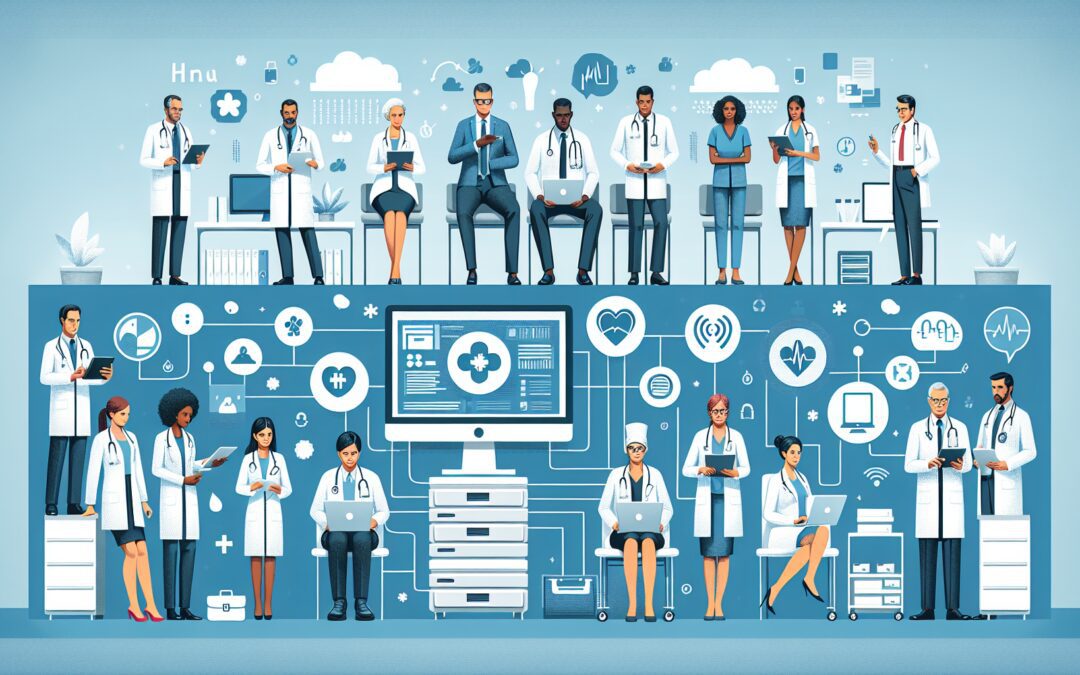Health Information Management (HIM) is a critical component in the realm of modern healthcare. As the healthcare landscape evolves, the effective management of health information becomes pivotal to ensuring quality patient care, enhancing operational efficiency, and maintaining compliance with regulatory standards. This article explores the multifaceted importance of HIM and its impact on modern healthcare systems.
Enhancing Patient Care
One of the primary benefits of Health Information Management is its direct impact on patient care. HIM professionals ensure that accurate and up-to-date patient information is readily available to healthcare providers. This accessibility allows for better-informed decision-making, timely diagnosis, and personalized treatment plans. Furthermore, streamlined health information reduces the risk of medical errors, thereby improving overall patient outcomes.
With the emergence of electronic health records (EHRs), HIM has become even more significant. EHRs facilitate the seamless exchange of patient information across various healthcare settings, promoting continuity of care. For instance, a patient’s medical history, including previous treatments, allergies, and laboratory results, can be accessed by any healthcare provider involved in the patient’s care journey. This comprehensive visibility into a patient’s health status enables more coordinated and efficient care delivery.
Operational Efficiency
Efficient management of health information also contributes to the operational efficiency of healthcare organizations. By digitizing records and automating processes, HIM practices reduce the administrative burden on healthcare staff. This enables healthcare professionals to focus more on patient care rather than paperwork.
Moreover, accurate health information management aids in better resource allocation. For example, data analytics can be employed to identify trends and patterns in patient visits, treatment outcomes, and resource utilization. Such insights can help healthcare facilities optimize their operations, forecast demand, and improve resource scheduling, ultimately leading to cost savings and enhanced productivity.
Regulatory Compliance and Data Security
In the highly regulated healthcare industry, compliance with legal and regulatory standards is paramount. HIM professionals play a crucial role in ensuring that healthcare organizations adhere to regulations such as the Health Insurance Portability and Accountability Act (HIPAA). They are responsible for implementing policies and procedures that safeguard patient information and ensure its confidentiality, integrity, and availability.
Data security is another critical aspect of health information management. With the increasing prevalence of cyber threats, protecting sensitive health information has become a top priority. HIM professionals implement robust security measures, including encryption, access controls, and regular audits, to prevent unauthorized access and data breaches. By doing so, they help build trust between patients and healthcare providers, ensuring that patient information is handled with the utmost care.
Supporting Public Health Initiatives
Health Information Management also plays a vital role in supporting public health initiatives. Aggregated health data can be analyzed to monitor and respond to public health crises, such as infectious disease outbreaks. This data-driven approach enables public health authorities to make informed decisions, allocate resources effectively, and implement interventions that mitigate the spread of diseases.
Additionally, HIM supports research and evidence-based practice by providing accurate and comprehensive health data. Researchers can leverage this data to conduct studies, identify health trends, and develop new treatments and protocols. In turn, these advancements contribute to the overall improvement of healthcare quality and patient outcomes.
Conclusion
In conclusion, Health Information Management is indispensable in modern healthcare. Its role in enhancing patient care, improving operational efficiency, ensuring regulatory compliance, and supporting public health initiatives underscores its significance. As healthcare continues to evolve, the importance of effective health information management will only grow, making it a cornerstone of high-quality, efficient, and secure healthcare delivery.


